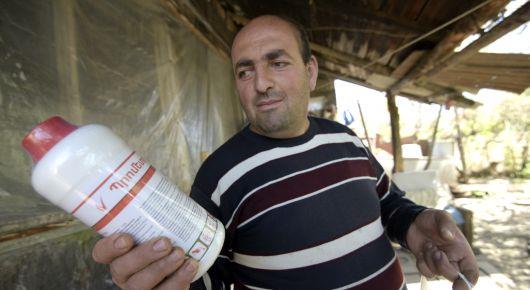Pesticide management conference kicks off

Registration of pesticides is an important step in the management of pesticides. It enables authorities to determine which products are permitted to be used and for what purposes, and also to exercise control over quality, use levels, claims, labelling, packaging, and advertising the risk of pesticides. This ensures that the interests of end-users, as well as the environment, are well protected.
Starting today, FAO organized a three-day regional conference in Dushanbe within the framework of a regional project on lifecycle management of pesticides and disposal of persistent organic pollutant pesticides in Central Asian countries and Turkey, funded by the Global Environment Facility.
Attending this event will be more than 20 technical staff responsible for plant protection and pesticide management representing national plant protection organizations and other relevant national bodies from Azerbaijan, Georgia, Kazakhstan, Kyrgyzstan, Republic of Moldova, Tajikistan, Sweden, Turkey, and Ukraine.
They will discuss different aspects of pesticide registration system, such as decision-making, data requirements, assessment methods, and risk mitigation. The training will include the navigation and use of national and international standards, as well as a review of how best to apply these tools in the national registration of agricultural, domestic, and public health pesticides.
“The proper assessment of pesticides before they are registered for use is a crucial mechanism to ensure that only appropriate pesticides enter the national market,” emphasized Oleg Guchgeldiyev, FAO Representative in Tajikistan.
Specific attention will be given to strengthening pesticide regulatory management capacity and enhancing regional collaboration and information exchange between pesticide regulatory authorities.
“The intensification of agricultural production along with climate change effects have increased the pressure of pests and diseases on crops and changed the dynamics and spatial distribution of pests and their interaction with plants,” said Tania Santivanez, the lead technical officer of the project “According to estimations, the annual losses caused by insects, weeds, and disease are around 20-40 percent. Although pesticides play an important role in reducing crop losses, if misused they may have a serious negative effect both on human health and the environment.”
25 September 2019, Dushanbe, Tajikistan
